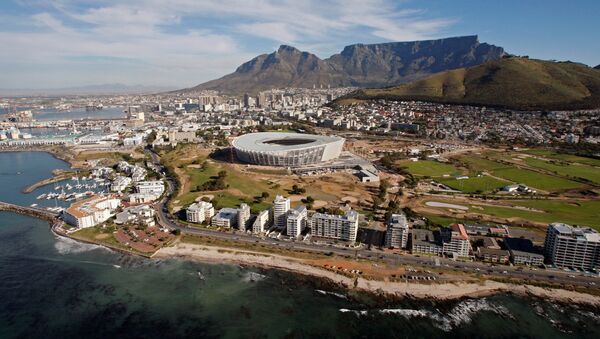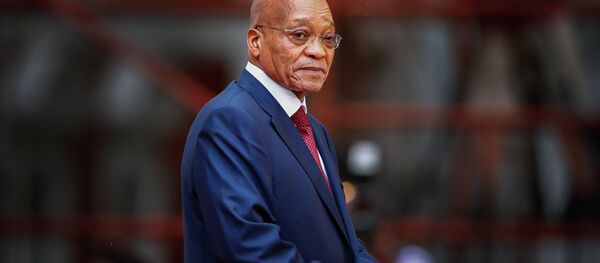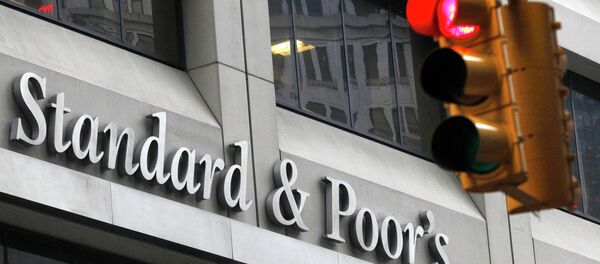The structural inefficiency of the economy has exacerbated during the past year as social tensions, policy indecisiveness, and overall output were trapped in the downward spiral of contraction.
According to the data by StatSA, the South African economy has slowed to 0.3pc in 2016 compared to 1.3pc in the previous year, and the negative trends are prevalent across most sectors and provinces, with a notable exception of the services-driven province of Western Cape.
The once most-developed nation of the African continent is now struggling amidst the contraction in mining, manufacturing and other raw material production. South Africa’s main source of wealth has long been the production of diamonds and precious metals, but this industry’s glory days seem to be long-gone as the ruling African National Congress (ANC) party has failed to encourage sustainable business activity in the secondary sector of the economy.
StatSA reported a yearly contraction in the primary sector by 9pc, and a slump in the secondary sector by 1.8pc. These dynamics are putting the well-being of the less educated South Africans at risk, and are stirring the hazards of greater social turmoil down the road.
The services sectors is, however, a sign of optimism for the struggling nation, having posted 1.3-percent growth from the year, driven by gains in financials, transportation and telecommunications, as well as real estate and construction, the latter benefitting from the sustainable influx of immigrants. The demand for housing and services draws support from population growth and looks sustainable, however, the lack of jobs in the productive primary and tertiary sectors is hampering the overall economic prospects.
Agriculture contracted by 0.1pc in 2016, but the robust demand for food products is expected to bring the industry back on track this year.
“What is important is that the trajectory is upward and we should see an improvement in 2017,” Michael Manamela of StatSA said.
The nation’s finance minister, Pravin Gordhan, has been busy reassuring international investors of South Africa’s investment appeal throughout the past year, but he is currently facing a greater challenge – the lack of budget revenues, fuelled by the negative dynamics in the primary and secondary sectors of the economy.
South African Treasury must extract an additional $2 bln in order to contain the budget deficit at the 3.1-percent target. The nation’s tax revenue has been lagging behind the weak economic expansion by some 30 bln rand ($2.38 bln), and the current growth projections at 1.3pc for this year are putting additional pressure on the government.
Gordhan said to the Parliament in Cape Town he considers rising taxes in order to meet fiscal targets and preserve the nation’s fragile international credit rating. This, however, will likely come at the expense of an even weaker business activity and GDP growth at home. A failure to meet budget target, on the other hand, will result in severe disinvestment at home, meaning Gordhan os stuck between the hammer and the anvil of equally bad options.
“In a word, disappointing. No bold measures to deal with current challenges,” Razia Khan of Standard Chartered commented on Gordhan-proposed fiscal measures. “The Treasury laid out the argument for a VAT hike in the budget review but stepped back from doing anything meaningful.”
Tensions between Gordhan and President Jacob Zuma are also hampering the much-needed structural reform in the economy. In order to help the economy, Zuma proposed building atomic power plants, which would cost some 1 trln rand, almost the entire national budget of the past year, by the state corporation Eskom.
Zuma also proposed a greater inclusion of the black majority in state offices, land ownership, and investment. Gordhan, on his part, has a different view of the necessary economic reform.
“Without transformation, growth will reinforce inequality. Without growth, transformation will be distorted by patronage,” Gordhan said.
The Treasury has proposed an increase in income tax to 45pc for individuals earning over 1.5 mln rand, as well as higher taxation of petrol and alcohol. Raising VAT levels, however, would be problematic due to the sweeping poverty among most black South Africans, whom the ANC has been struggling to help for the past 23 years they have been in power.
“We have been able to look through the political noise around speculation of a cabinet reshuffle up to now. However, the latest shift to elevate Brian Molefe to parliament could mean that risk around a cabinet reshuffle, specifically aimed at replacing the finance minister or his deputy, has increased.
Not only does this threaten the outlook for the exchange rate in the short-term, it also heightens the risk of a credit downgrade by creating concerns around the fiscal consolidation,” Deutsche Bank analysts wrote.






